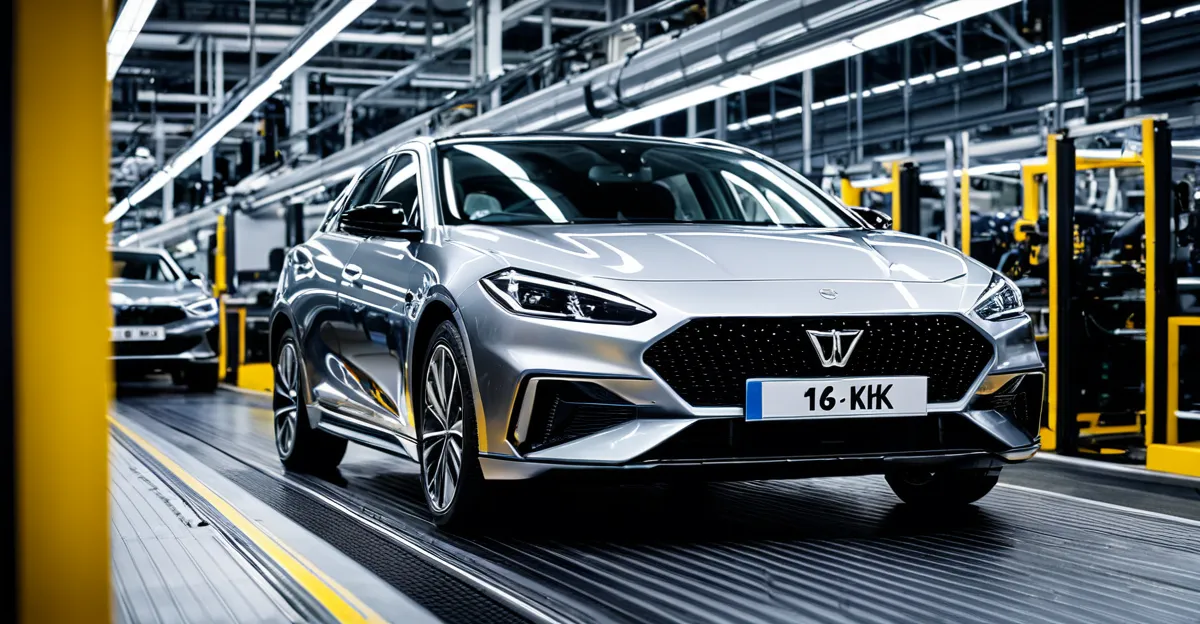Smart Manufacturing Defined in the UK Automotive Industry
Smart manufacturing in the UK automotive industry integrates advanced technologies to enhance production efficiency, flexibility, and quality. At its core, smart manufacturing uses connected systems, data analytics, and automation to create a smart factory environment where processes communicate and adapt in real-time.
In UK car production, this often involves deploying robotics, the Internet of Things (IoT), and artificial intelligence (AI) to monitor and optimize assembly lines. These technologies enable factories to respond dynamically to product variations, supporting customization while maintaining high output.
This might interest you : What Are the Upcoming Challenges in the UK Automotive Industry?
Key principles of smart manufacturing include connectivity, real-time data exchange, and closed-loop control mechanisms. These principles help UK automotive plants achieve greater agility, reduce downtime, and improve product quality.
Industry trends shaping adoption focus on digital transformation and sustainability. UK manufacturers are increasingly investing in smart manufacturing to remain competitive globally while meeting environmental targets. The rise of smart factories reflects a shift toward more intelligent, responsive production systems that support innovative vehicle design and faster time to market.
Also read : How are UK Automotive Innovations Influencing Global Trends?
Such developments position the UK automotive sector as a leader in adopting cutting-edge manufacturing solutions, blending tradition with technological advancement.
Key Technologies Driving Smart Manufacturing in UK Car Plants
Leading-edge technologies such as IoT, robotics, and AI are at the heart of Industry 4.0 transformations in the UK automotive sector. These tools enable real-time data collection and analysis, allowing smart factories to optimize workflows instantly. IoT devices connect machines and sensors to create an interconnected system, providing continuous monitoring of equipment health and production status.
Robotics bring flexibility and precision to assembly lines, performing repetitive tasks with high accuracy and reducing human error. AI algorithms analyze large datasets collected by IoT sensors to predict maintenance needs, adjust operations, and improve product quality, enhancing overall manufacturing performance.
Digital integration in UK car plants facilitates these technologies working in concert. This integration supports closed-loop control systems, where feedback from production data informs immediate adjustments, minimizing downtime and defects.
For example, some major UK automotive facilities have implemented advanced robotics coupled with AI-driven analytics to monitor painting processes, ensuring consistent finishes while reducing waste. Others use IoT-enabled equipment to track energy consumption in real time, thus improving efficiency.
Collectively, the adoption of Industry 4.0 technologies like IoT, robotics, and AI is shaping the future of UK automotive manufacturing by enabling smarter, more adaptable, and efficient production environments.
Improvements in Efficiency and Productivity in UK Car Production
Smart manufacturing drives significant manufacturing efficiency improvements within UK car factories. By leveraging automation and connected systems, production times are reduced, enabling more vehicles to be assembled per shift. For instance, real-time data from IoT sensors allows for rapid identification of bottlenecks, so adjustments can be made immediately, boosting overall productivity.
Flexibility on production lines is another key benefit. Smart manufacturing systems support rapid changeovers to accommodate diverse car models and customization options without sacrificing speed. This adaptability is vital as consumer demand shifts toward personalized vehicles.
UK automotive plants adopting these innovations report notable gains. For example, some factories have achieved up to a 20% increase in output per worker, demonstrating how digital tools enhance both human and machine performance. Lean manufacturing principles, combined with smart technology, help minimize waste and optimize workflows.
In sum, smart manufacturing facilitates faster, more agile car production in the UK. It enables plants to produce higher volumes with consistent quality while meeting increasingly complex market demands. This positions the UK automotive industry as a competitive force globally, capable of sustaining growth even amid evolving customer expectations.
Cost Reductions for UK Automotive Manufacturers
Smart manufacturing enables notable cost savings for the UK car industry by streamlining operations and reducing inefficiencies. Automation plays a crucial role, cutting labour costs and boosting output accuracy to minimise rework expenses. Predictive maintenance, powered by AI and IoT data, helps avoid costly machine breakdowns by scheduling timely repairs before failures occur. This approach lowers maintenance expenses and limits downtime, directly impacting operational costs.
Additionally, process optimisation through smart systems reduces material waste. Continuous monitoring and data analysis identify inefficiencies in resource use, enabling smarter allocation and minimising scrap. For instance, IoT sensors track energy consumption, allowing factories to adjust power usage dynamically and cut utility bills. These improvements contribute to a leaner, more cost-effective production model.
Financial impacts are evident in UK automotive plants that report lower manufacturing overheads due to smart manufacturing adoption. Investment in such technologies often results in measurable returns by reducing waste-related expenses and improving asset utilisation. Consequently, British car manufacturers are better positioned to maintain competitive pricing while investing in innovation and sustainability.
In summary, cost reductions in the UK automotive sector hinge on automated solutions, predictive maintenance, and resource efficiency—all key to enhancing profitability without compromising product quality.







